Royal visits to the Algarve were rare and sparse. Between the journeys of D. Sebastião in 1573 and of D. Carlos in 1897, there were more than 300 years, without royal blood stepping on Algarve soil. Not even the inauguration of the railway, in 1889, was a reason for a displacement of the crowned heads to the district, contrary to what was happening, in similar situations, in other parts of the country.
In fact, the region was very peripheral, lacking accommodations to receive the royal entourage. During the visit of D. Carlos and Queen D. Amélia, in October 1897, carried out via the railroad, the monarchs often stayed overnight on the yacht D. Amélia, as there was no accommodation on land that would allow them to receive the royal entourage. We were still a long way from the cosmopolitan and touristy Algarve of our day.
If the journey to the region was, by land, difficult and uncomfortable until the arrival of the train, by caique, with the right winds, it only took one day to reach the Algarve coast. However, despite Portugal being a country of sailors, few monarchs ventured to travel by boat, with the exception of D. Carlos.
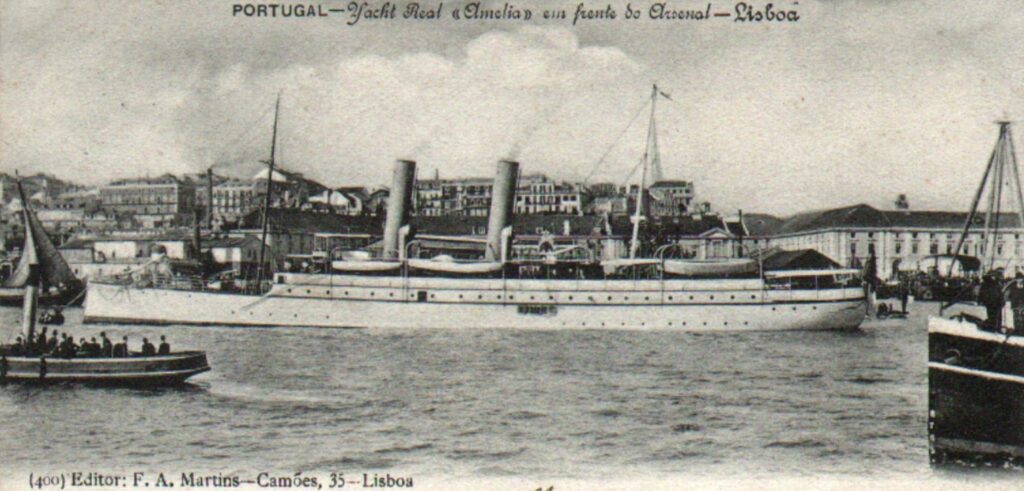
A lover of oceanographic studies and having officially visited the Algarve in 1897, King D. Carlos would travel frequently, albeit in a special way, to the Algarve seas in the following years, on the yacht D. Amélia. One of these voyages took place on May 15, 1902. The royal family was absent from the capital for three days, having embarked in the morning at the Galeota pier, together with the Counts of Figueira, Tarouca and d'Arnoso, Marquis of Soveral and Lieutenant Figueira, heading for the south coast.
The national press, such as the daily newspapers «O Século» or «Diário de Notícias», although with less coverage, as they were private trips, did not fail to follow them through local correspondents. Regional periodicals also paid attention to it, such as the «Districto de Faro», not least because sometimes the monarchs moved to land. It is therefore based on the contents of these newspapers that we will seek to revisit those unused and forgotten days in regional history.
At the end of the 15th of May the yacht anchored in the bay of Sagres. The next morning the trip continued to Lagos, the boat having stayed for some time along the tuna traps at Torre Alta and Torre Altinha. The objective was to watch a match, but as there were no fish, the same did not materialize.
Anchored in the bay of Lagos, in the early afternoon, the monarchs received on board the greetings of local authorities, military, judicial, administrative, among others. During the reception, D. Amélia showed interest in getting to know the surroundings of the city, as she had already visited Lagos in 1897. Thus, at 16:30 pm the Queen, accompanied by the Countess of Figueiró, Marquis of Soveral, Counts of Arnoso, Figueiró and Tarouca, as well as as the naval officer Caldeira, disembarked from the royal yacht.
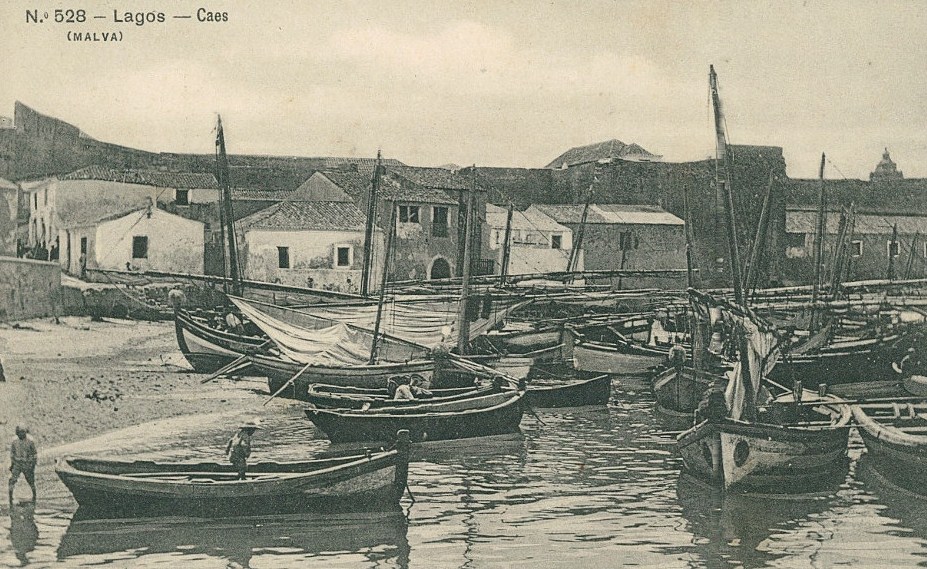
After a brief journey on foot and a stop at the «magnificent» church of Santo António, where, according to «O Século» the monarch was «praying in prayer and admiring the good works of carving that exist there», the entourage went by train to Senhora da Luz, along the Espiche road. The procession included the administrator of the municipality, the mayor, Pedro Tello, Francisco Tello, Manuel António da Silva, Caetano Ribeiro Lopes, Joaquim Lobo de Miranda, Manuel Ferreira Corte Real, among others.
In Luz, the queen visited the church and toured the churchyard, then headed to Burgau, where she was the target of an imposing popular demonstration. After all, «as soon as it became known that her majesty the queen was there, all its inhabitants came to the street, giving many cheers to the august sovereign», one reads in that newspaper.
D. Amélia distributed some alms to the poor, heading back to Lagos, along the Luz road. At the moment of boarding, on the quay of Praça da Constitution, rockets were fired and bells tolled, with Infantry Battalion 17 acting as the guard of honor and the Lacobrigensian elite saluting the entourage. On that occasion, two bouquets of roses were offered to the queen, by the daughters of the clerk of the Treasury, Adelaide Moura and the French vice-consul Ivonne Fabre.
The landing in Lagos had been «quite difficult», having taken place on the beach, as there was no suitable dock at low tide. A situation that led the «Diário de Notícias» (DN) to classify it as shameful, for leading the queen to «cross the filthy stream and arch of S. Gonçalo, which is as clean as that one, her majesty slipping in some fish heads".
The correspondent of that newspaper acknowledged that the Lacobrigenses had shown «the respect due to the head of state and his excellent wife», however, he highlighted the lack of the people, and the little that emerged greeted the royal visit «coldly», which justified as a result the displeasure for the government's unfulfilled promises (construction of the wharf), as well as for the disregard that the removal of the regiment's headquarters from the city, after 96 years, had provoked.
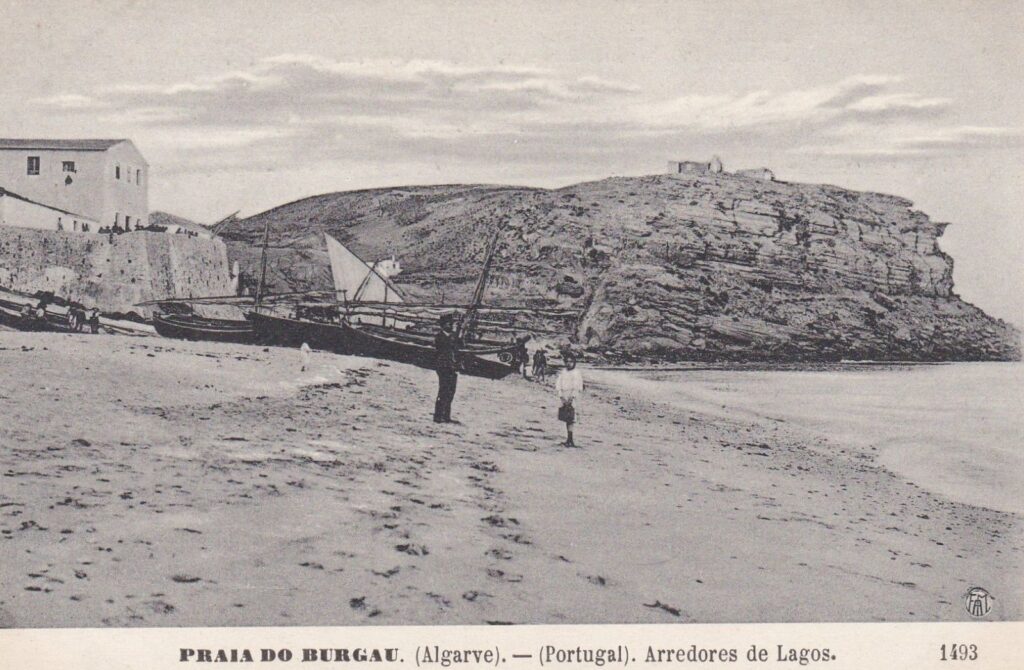
Another aspect to consider, we add, was related to republican ideals, which by those years were already widespread there and which culminated in 1908 with the election of a republican chamber.
But let's go back to 1902. On board, during the afternoon, the king was on the beach of Porto de Mós, «watching the launching of the mackerel, with which he caught a large quantity of fish of different qualities».
At night, according to the DN, the buildings of the town hall, the barracks of Battalion 17 and the regimental hospital were illuminated in the city, as well as rockets, while in the bay some boats were flagged in an arc.
The following morning, May 17, at 10:00 am, the yacht set sail for Albufeira, in order for D. Carlos to witness the tuna fishing in the nearby boats. Copejo that everyone watched in the Galé frame, by whose company they ordered the sovereigns to distribute, according to the «District of Faro», 50$000 réis.
When the yacht anchored in the bay of Albufeira, whirlwinds of rockets crashed ashore. At around 16 pm the queen disembarked, with her entourage, attending the reception, according to «O Século», the «chamber, authorities, many distinguished gentlemen and people».
Dona Amelia strolled through the countryside in a carriage. Although the visit was not expected, “he was given a delirious ovation. Lots of quilts on the windows, and flowers and bouquets were thrown at her», one reads in that diary. The queen prayed in the parish church, I have taken to the yacht in the evening, «very impressed». Both in Albufeira and in Lagos there were performances by philharmonic bands.
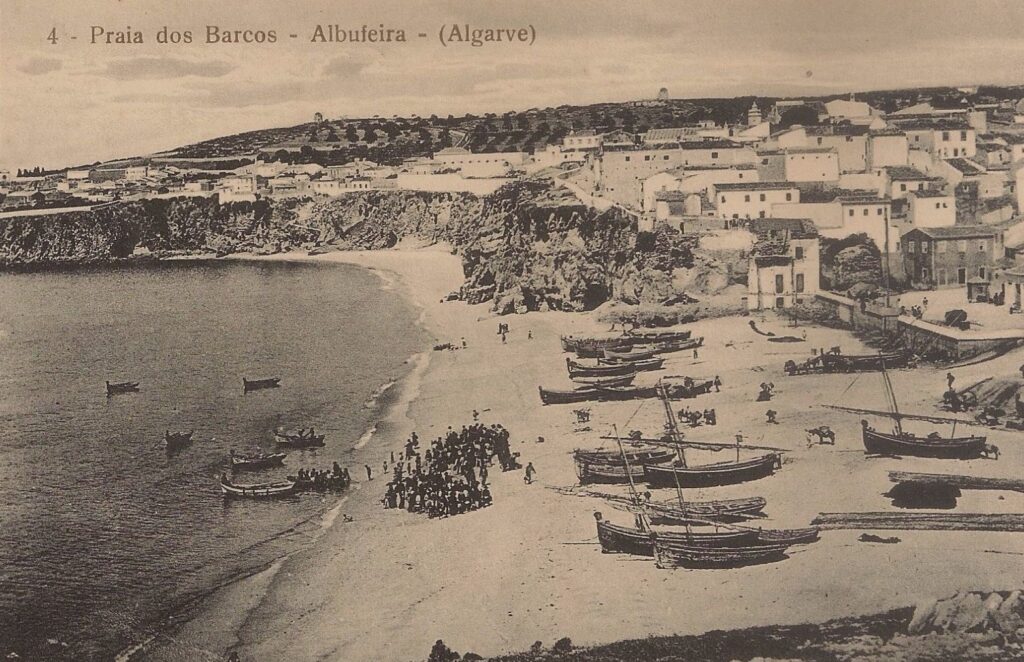
The king, “because of his oceanographic studies”, did not disembark, receiving on board the compliments of the Chamber, other local authorities and individuals.
Unlike Lagos, it was the first time that Albufeira welcomed Queen Amélia and, perhaps for this reason, the sovereign was, in the words of «O Districto de Faro», «enthusiastically acclaimed» throughout. There would be no unfulfilled promises here. It should be remembered that in 1897 the royal family was welcomed by the Chamber and the people of Albufeira at the railway station, not going to the county seat. As for republican ideals, they knew little expansion.
The yacht D. Amélia then headed to Setúbal, where on Sunday the kings attended mass.
The very brief voyage would not be the only one in that already distant year of 1902. In August the royal yacht and its majesties visited the Algarve seas again. From the various oceanographic campaigns carried out in those years, the work, consisting of two volumes, “Maritime Fisheries: I. – Tuna Fisheries in the Algarve in 1898” and “Ichthyologia: II. Squalos obtained on the coasts of Portugal during the campaigns of 1896-1903», by King D. Carlos, published in 1899 and 1904, respectively.
But for now, May 1902, people from Lacobrigensia and Albufeira were congratulating themselves on the unexpected visit of Queen D. Amélia and would keep her memory throughout their entire existence.
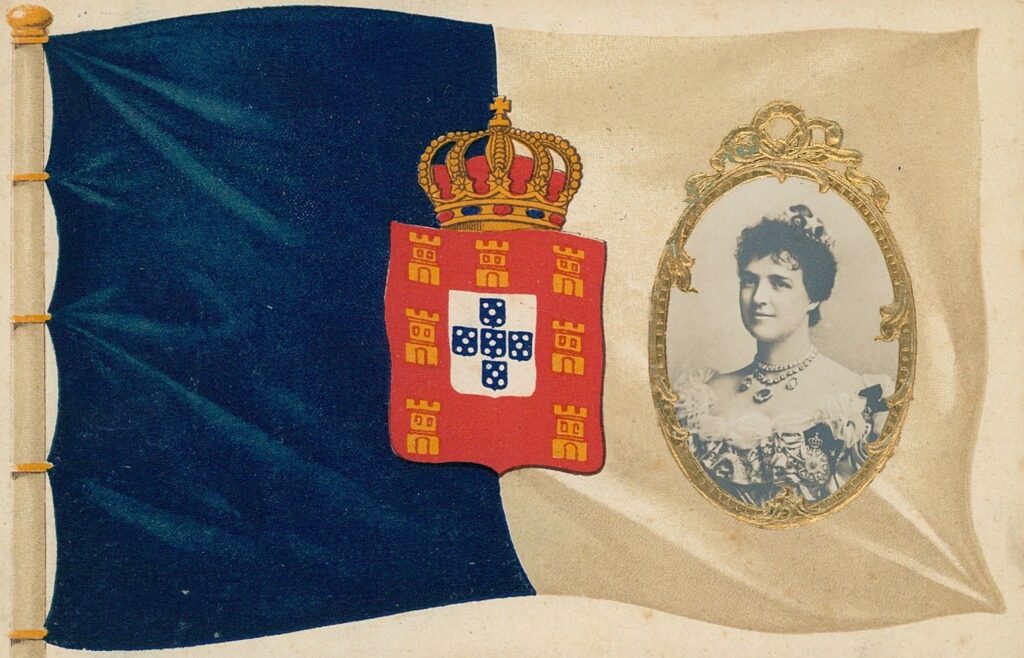


















Comments